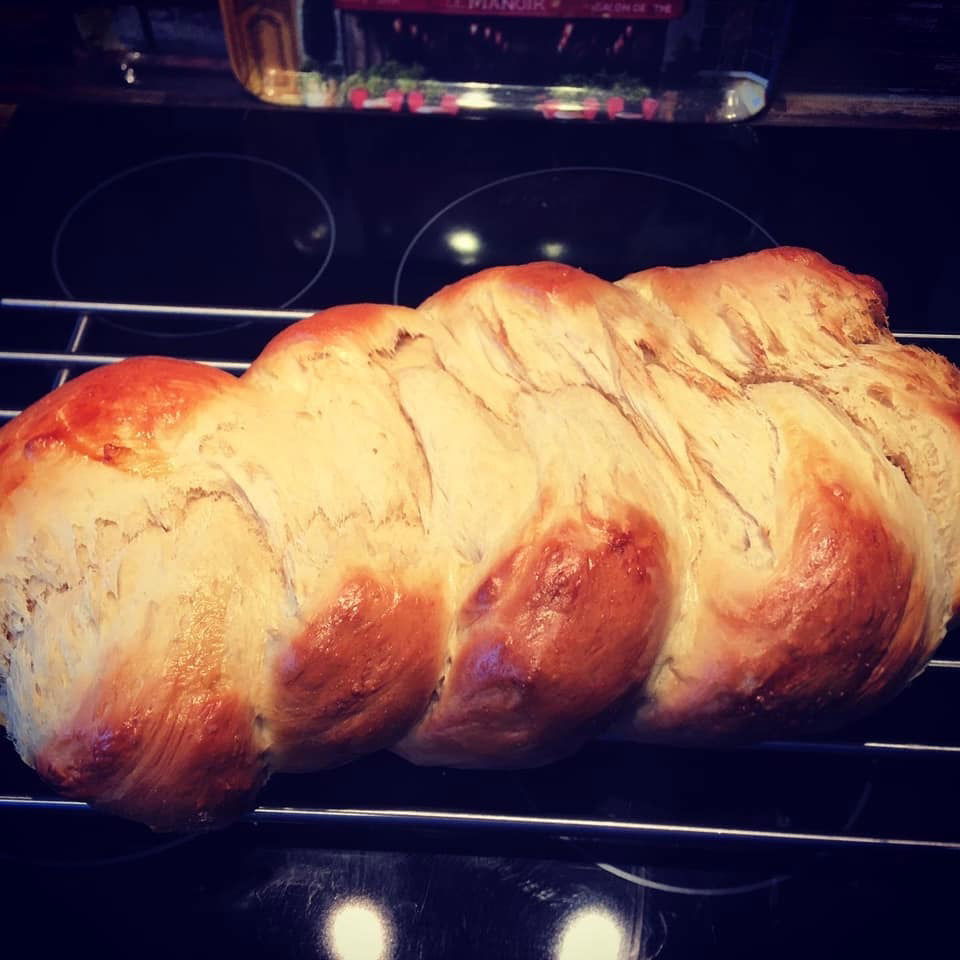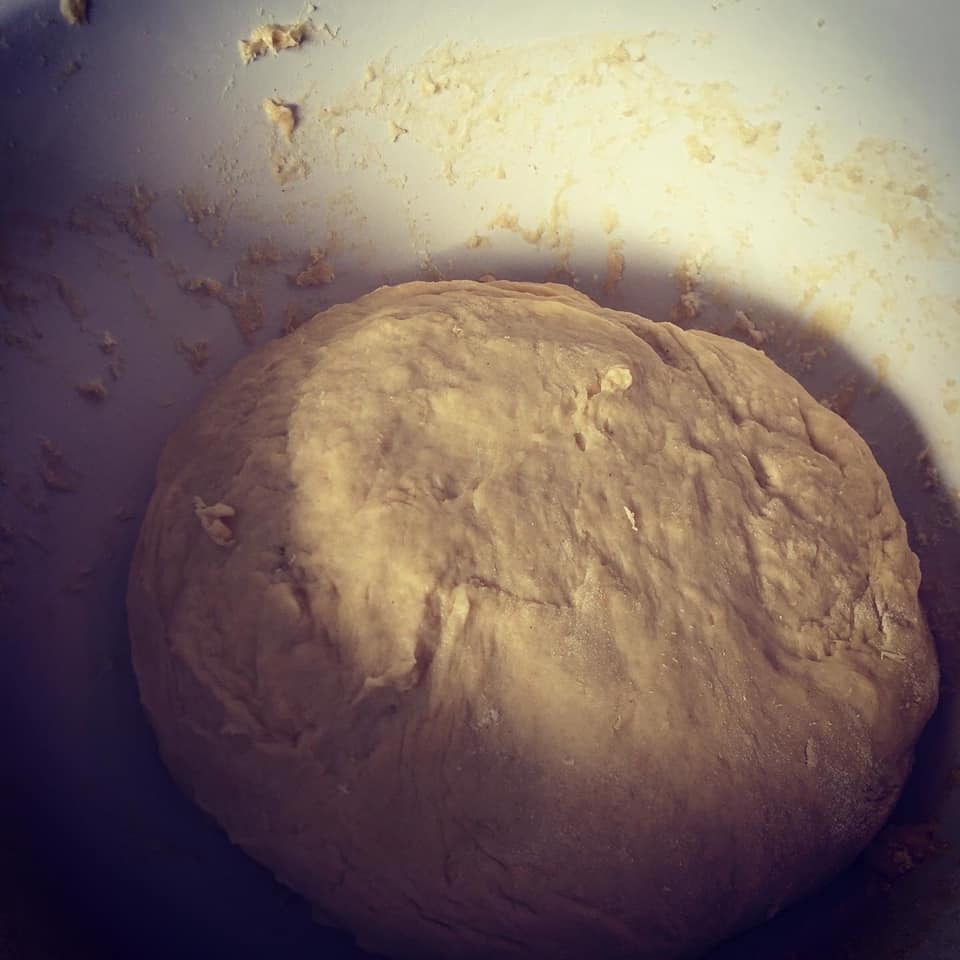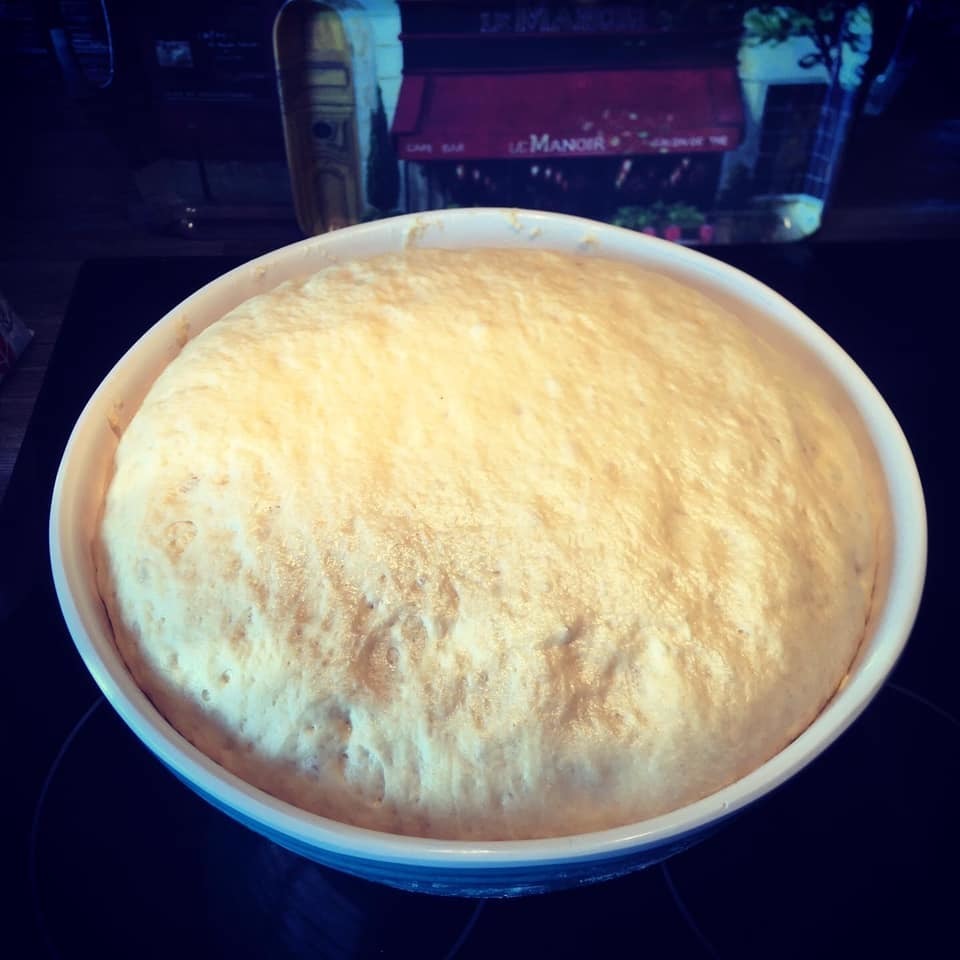Hefezopf - yeast braid
In Germany you traditionally eat Hefezopf for breakfast at Easter time. Normally it is braided and in some parts of Germany said braid is then formed into a wreath (which is then called Hefekranz). The dough is made from flour, sugar, butter, eggs and yeast, and sometimes raisins are added or flaked almonds, or lemon peel, or whatever your heart desires.
I know it is not Easter yet, but since I had some fresh yeast that needed using up, I decided to give the Hefezopf a try. I have eaten it numerous times but since it is readily available from German bakeries, I never had to actually get down to making it. It was surprisingly easy to make, even the braiding part, and I am rather proud of the result.



Ingredients
1 kg white flour
500ml lukewarm milk
100g sugar
1 cube fresh yeast (42g)
150g soft unsalted butter
2 tsp salt
3 eggs
1 tsp vanilla
Method
Put the flour into a large bowl. Add the salt.
Mix the warm milk, the sugar and yeast until the yeast has dissolved. Add the two of the eggs and vanilla.
Pour the milk mix into the flour (all at once) and knead until you have a nice and elastic dough. I do this by hand which can take up to 10 mins and sometimes requires a bit of additional flour.
Cover the dough with a wet towel (to avoid the dough from drying out) and let it proof until it doubles in size. That can take a couple of hours.
Preheat the oven to 160C fan.
Flour the work surface and knead the dough again before cutting it into three equal parts to plait it.
Transfer the plait onto a baking tray.
Mix the third egg with a pinch of salt and a pinch of sugar (this stops the eggs mix from turning black in the oven) and brush the egg mix over the plait.
Bake at 160C fan for 30-35 mins.
